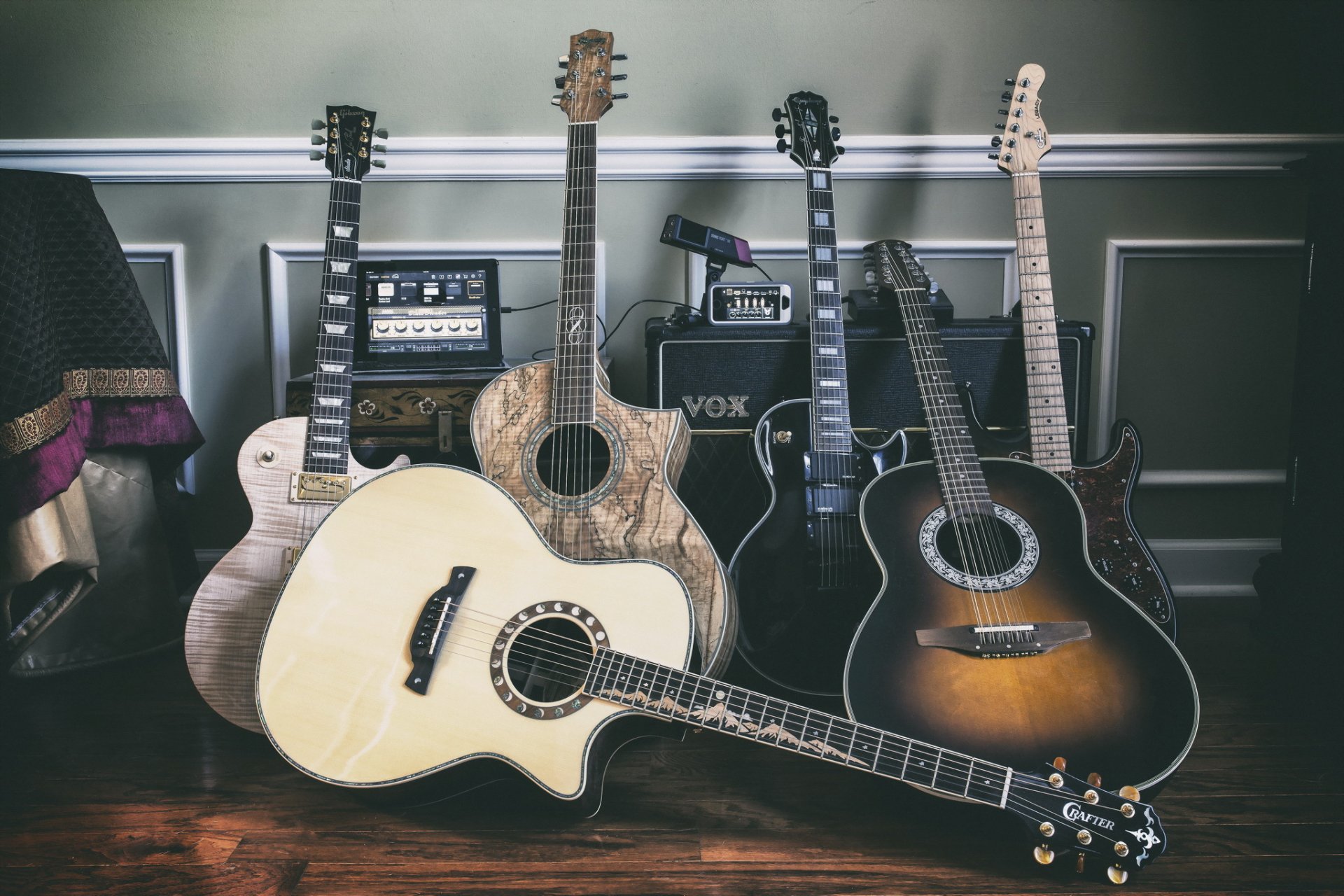
In this article, we will consider one of the frequently described situations by potential students:
‘I really want to learn to play the electric guitar, but I have a problem. I have never played an acoustic (classical) guitar, and many people say, and I have read various articles stating that before learning to play the electric guitar, you need to master the basics on an acoustic or classical guitar. But I am not interested in acoustic or classical guitars at all, but I am attracted to the electric guitar. How critical is the absence of skill in playing an acoustic (classical) guitar to start learning the electric guitar?’
The thing is, the classical guitar, acoustic guitar, and electric guitar are three completely different musical instruments, differing not only in sound but also in functionality. Therefore, they also differ in terms of sound extraction technique. To make it clearer, let me give you a couple of analogies. If a person wants to learn to drive a car and comes to a driving school for that purpose, the instructors there are unlikely to offer them motorcycle or dump truck driving lessons. Although these types of vehicles travel on the same roads, they are fundamentally different. Similarly, people who wish to study boxing are unlikely to seek guidance from a Greco-Roman wrestling coach since it is obvious that these are two completely different combat disciplines. While these statements practically do not raise any doubts, the situation with guitars is completely different.
Unfortunately, a considerable number of people indeed do not understand the difference between the classical, acoustic, and electric guitars. Of course, many people realize that these instruments have little in common. However, among them, there are those who firmly believe that one cannot begin learning to play the electric guitar without first learning to play the acoustic or classical guitar. I can assure you with all responsibility that these beliefs are purely stereotypes and do not carry any informational value. Following these unfounded assumptions is a serious mistake that will lead to nothing but wasted resources and time. As for the origin of this stereotype, it is another question. Someone read it on the internet, someone figured it out on their own, someone was told by a teacher who is either incompetent and believes in that nonsense or simply a fraud trying to hold onto a student for as long as possible at any cost.
In reality, there is absolutely no connection between the acoustic, classical, and electric guitars, except for the number of strings (and even that is not always the case). As mentioned before, each of these musical instruments has its own specificity and functionality, which impose certain characteristics related to sound extraction technique. That is, if a musician is proficient with, for example, the acoustic guitar, it does not mean that they can immediately master the electric guitar or the classical guitar without any preparation.
So, how does the electric guitar differ from the acoustic and classical guitars? Let’s take the parameter of sound purity, for example. The electric guitar, unlike the acoustic or classical guitar, is essentially a hyper-sensitive instrument since it is mostly used when playing with distortion. It is so sensitive that it requires constant total control over muting unwanted strings. Intense, dirty playing on the acoustic or classical guitar entails direct attack of unwanted strings along with the playing strings. With the electric guitar, things are much more complicated. Even if the pick strikes the playing strings perfectly accurately, the unwanted strings will still resonate if not muted, resulting in a heap of dirt and various overtones heard through the amp. That is why one of the main problems encountered by beginner electric guitarists is achieving clean sound. Similar situations can also occur on acoustic and classical guitars, but they may not be as obvious to people with an undeveloped ear. To learn to hear the resonance of neighboring strings and the dissonant notes caused by the side vibration of unwanted strings on an acoustic or classical guitar requires a certain level of experience with playing those musical instruments, which beginners inevitably lack. Therefore, when playing different types of guitars, the hands will work in completely different ways.
It is evident that expecting clean playing on the electric guitar while only learning on a classical or acoustic guitar is not realistic. This does not mean that the electric guitar is better than the acoustic or classical guitar — they are simply different. Each individual should decide for themselves which one they prefer, based solely on their musical preferences. There is no other way to answer such a subjective question. It is no secret that the wages of a general laborer are much lower than those of a specialist in a specific field. Coincidence? No, rather an objective regularity. A boxer should teach boxing, an instructor should drive a car…
Certainly, music, and especially teaching, is no exception to this. So, if you have a desire to learn the acoustic guitar, I strongly recommend seeking a teacher specializing in acoustic guitar. If you have a desire to explore the classical guitar, look for a teacher specializing in classical guitar.
